You are here
Cryoviva Group Provides Biobanking and Therapies Across Asia
Cryoviva is a group of companies that have established a leadership position in Southeast Asia for biobanking and therapy services with cord blood and biological tissues.
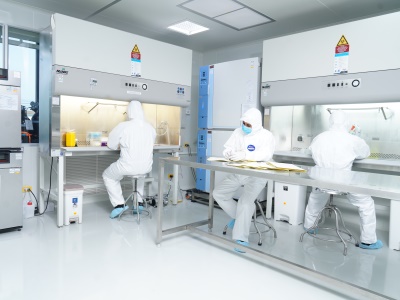 Cryoviva Thailand was established in 2007 with support from the Thailand Board of Investment (BOI), an agency of the government that promotes foreign investment in Thailand, and received support from well reputed investors such as Indorama Ventures and RJ Corp. In 2010, Cryoviva became the first cord blood bank in Thailand to receive cord blood banking accreditation from AABB. The first successful transplant of a Cryoviva client with the diagnosis of Thalassemia took place in 2013. Reviva Cell (Thailand) Ltd., a company dedicated to the separation of Mesenchymal Stromal Cells (MSC) from various tissue sources, became a part of the Cryoviva Group in 2017. Since 2018, Reviva is the only facility in Thailand with the AABB accreditation for somatic cell activities. This accreditation covers many tissue types (Cord Tissue, Amnion Tissue, Adipose Tissue) and multiple tissue activities.
Cryoviva Thailand was established in 2007 with support from the Thailand Board of Investment (BOI), an agency of the government that promotes foreign investment in Thailand, and received support from well reputed investors such as Indorama Ventures and RJ Corp. In 2010, Cryoviva became the first cord blood bank in Thailand to receive cord blood banking accreditation from AABB. The first successful transplant of a Cryoviva client with the diagnosis of Thalassemia took place in 2013. Reviva Cell (Thailand) Ltd., a company dedicated to the separation of Mesenchymal Stromal Cells (MSC) from various tissue sources, became a part of the Cryoviva Group in 2017. Since 2018, Reviva is the only facility in Thailand with the AABB accreditation for somatic cell activities. This accreditation covers many tissue types (Cord Tissue, Amnion Tissue, Adipose Tissue) and multiple tissue activities.
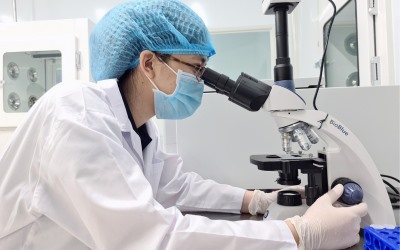 Cryoviva Singapore Private Ltd. was established in 2014 and is one of the leading family cord blood banks in Singapore. Cryoviva Singapore is accredited by AABB for cord blood banking and is the only facility in Singapore that is accredited by AABB for somatic cell activities. Cryoviva Singapore is participating in a first-of-its-kind clinical trial in partnership with KK Women's and Children's Hospital. The trial, registered with the Singapore Health Sciences Authority in 2018, treats Autism Spectrum Disorder (ASD) with autologous umbilical cord blood reinfusion. As of summer 2022, Cryoviva has released two cord blood units for children enrolled in this program.
Cryoviva Singapore Private Ltd. was established in 2014 and is one of the leading family cord blood banks in Singapore. Cryoviva Singapore is accredited by AABB for cord blood banking and is the only facility in Singapore that is accredited by AABB for somatic cell activities. Cryoviva Singapore is participating in a first-of-its-kind clinical trial in partnership with KK Women's and Children's Hospital. The trial, registered with the Singapore Health Sciences Authority in 2018, treats Autism Spectrum Disorder (ASD) with autologous umbilical cord blood reinfusion. As of summer 2022, Cryoviva has released two cord blood units for children enrolled in this program.
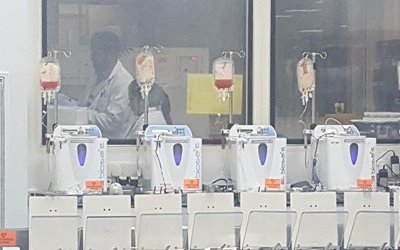 Cryoviva India was formed in 2016. Formerly the bank was known as Cryobanks International, a company founded in 2006. Cryoviva India is based in Gurugram (formerly known as Gurgaon), and is one of the leading banks in the competitive Indian market, and also offers their services to clients in some Middle East countries. Cryoviva India is the only cord blood bank in India to rely on Sepax processing technology. The Sepax system is closed and semi-automated, to protect against contamination or operator error. Cryoviva India offers both family banking and social banking along with financial assistance to the baby and the immediate family members of the baby if they should need a stem cell therapy that is FDA-approved or conducted under FDA-approved clinical trials.
Cryoviva India was formed in 2016. Formerly the bank was known as Cryobanks International, a company founded in 2006. Cryoviva India is based in Gurugram (formerly known as Gurgaon), and is one of the leading banks in the competitive Indian market, and also offers their services to clients in some Middle East countries. Cryoviva India is the only cord blood bank in India to rely on Sepax processing technology. The Sepax system is closed and semi-automated, to protect against contamination or operator error. Cryoviva India offers both family banking and social banking along with financial assistance to the baby and the immediate family members of the baby if they should need a stem cell therapy that is FDA-approved or conducted under FDA-approved clinical trials.
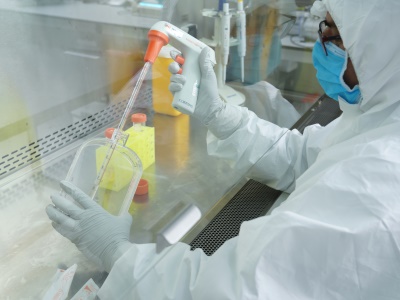 Cryoviva Vietnam began marketing cord blood banking in Vietnam in 2015, and established its own laboratory in Vietnam in 2022. Cryoviva Vietnam is the first foreign technology transfer stem cell bank licensed by the Vietnam Ministry of Health. At present, Cryoviva Vietnam is participating in research programs with local partners. In one study, Cryoviva Vietnam is cooperating with Hung Vuong Hospital to store MSC from umbilical cord tissue. These UC-MSC will be used to treat women’s infertility in cases where a thin endometrium is a problem during assisted reproduction with embryo transfer.
Cryoviva Vietnam began marketing cord blood banking in Vietnam in 2015, and established its own laboratory in Vietnam in 2022. Cryoviva Vietnam is the first foreign technology transfer stem cell bank licensed by the Vietnam Ministry of Health. At present, Cryoviva Vietnam is participating in research programs with local partners. In one study, Cryoviva Vietnam is cooperating with Hung Vuong Hospital to store MSC from umbilical cord tissue. These UC-MSC will be used to treat women’s infertility in cases where a thin endometrium is a problem during assisted reproduction with embryo transfer.
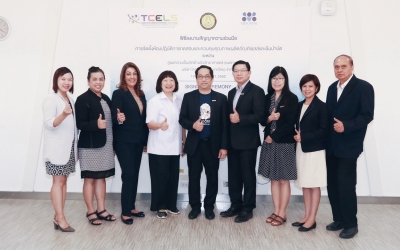 Thailand is already a leading destination in Asia for patients seeking regenerative medicine with stem cells. In order to ensure safety of such treatments, Cryoviva signed a cooperation agreement with the public organization the Thailand Center for Excellence in Life Sciences (TCELS) in 2019, under the Thai Ministry of Science and Technology, to establish a testing laboratory for quality control of cell and gene therapy products. In the same year, Cryoviva’s group company Reviva began offering banking of adipose (fat) derived cells. Reviva provides isolation and storage of MSC on behalf of specialized physicians, and currently facilitates between 200 and 300 treatments per per month for clients who have their cells stored with the company.
Thailand is already a leading destination in Asia for patients seeking regenerative medicine with stem cells. In order to ensure safety of such treatments, Cryoviva signed a cooperation agreement with the public organization the Thailand Center for Excellence in Life Sciences (TCELS) in 2019, under the Thai Ministry of Science and Technology, to establish a testing laboratory for quality control of cell and gene therapy products. In the same year, Cryoviva’s group company Reviva began offering banking of adipose (fat) derived cells. Reviva provides isolation and storage of MSC on behalf of specialized physicians, and currently facilitates between 200 and 300 treatments per per month for clients who have their cells stored with the company.
The Cryoviva vision is that to achieve continued growth, cord blood banks must look beyond simply banking newborn stem cells. The Cryoviva Group believes that the future of the biobanking industry is to partner in providing cell therapies.


